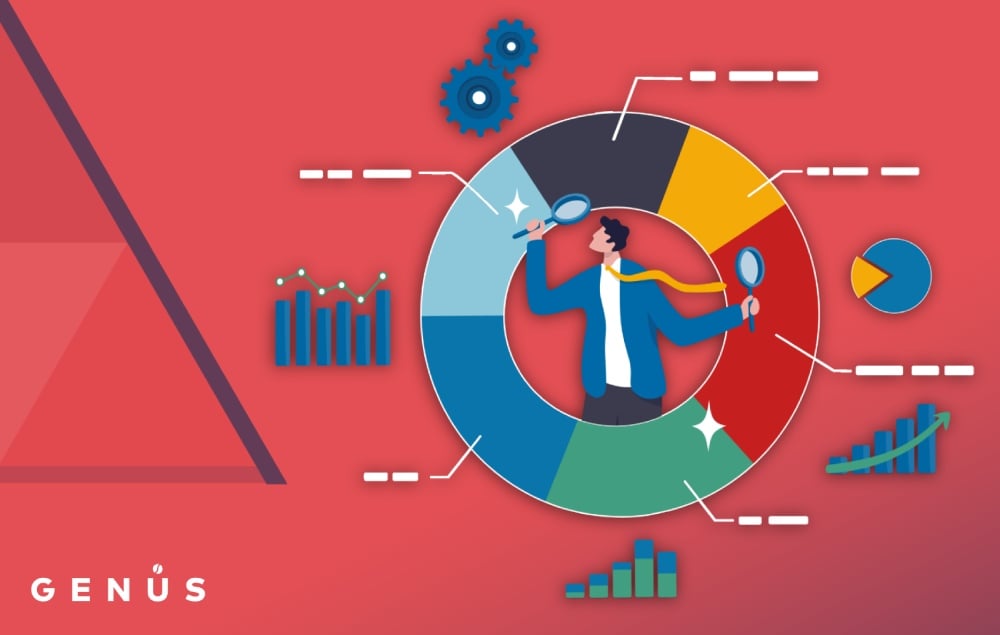
The last couple of years have seen potential applications and AI access increase at a rate rarely seen for any emergent technology. As part of our series of blogs on AI, we have already covered potential applications for businesses and the pitfalls that companies must be aware of.
One area that is undergoing a rapid shift due to AI is data analytics. It’s no secret that data is the lifeblood of modern business. As volumes of potentially valuable data grow exponentially, there is a growing need for innovative solutions to extract meaningful insights from it.
What are the biggest data analytics challenges in 2024?
Every business faces unique data challenges; however, these can generally be split into three categories.
Volume and complexity of data
As mentioned above, businesses generate vast quantities of data, some of which are highly complex. Traditional data handling methods are becoming less suited to promptly processing and analysing these large data sets, particularly for businesses without their own data engineers.
Efficiency of data management and processing
Even for businesses with the resources and know-how to generate valuable insights from vast data sets, the demand for real-time insights is outpacing the speed at which conventional data analytics tools deliver them.
Accuracy and reliability of insights
When using data to inform decisions, accuracy is essential. The larger and more complex the data set, the more likely errors will lead to inaccurate insights. This can lead to poor decisions and regulatory and security issues.
5 ways AI can improve Data Analytics
AI is a broad term. In this instance, we’re talking about various solutions, including machine learning algorithms, Natural Language Processors (such as Chat GPT), and computer vision (which enables computers to identify and understand images and videos).
Such tools were once restricted to only the most hi-tech and resource-rich of businesses, but that is no longer the case.
1. Automation of data processing
In terms of real business impact, the ability of AI to automate data processing may be the most significant difference maker. Data processing is notoriously time-consuming, and mistakes can cause major headaches. AI, however, excels in automating these routine tasks, accelerating data processing while removing human error. This means data analysts can focus on more complex areas of analysis.
2. Predictive Analytics
Machine learning enables AI to deliver enhanced predictive analysis, which is very useful for things like forecasting trends and identifying patterns in data.
3. Better data visualisation (Data-viz)
Data visualisation benefits all parties interested in a data set, whether it’s the data analytics team extracting insights or the shareholders who want the most up-to-date financial or customer data to inform significant decision-making. AI can create advanced data visualisations quickly and efficiently, simplifying even the most complex data into clear visual representations in a fraction of the time.
4. Improved fraud prevention and detection
Fraud remains a considerable problem in the digital age, and the risks will grow as data volume and accessibility do, too. Fortunately, AI algorithms are ideally suited to detecting abnormal patterns in even the most extensive data sets, enhancing both your security and that of your clients or customers.
5. Customer behaviour analysis
Whatever your business does, an improved understanding of your customers is one of the most important applications of data. Good data analytics can already uncover useful patterns and customer preference insights, helping enhance your customer service, product and marketing. The emergence of AI for businesses means you can generate more insights like this, using larger/more complex data, in a fraction of the time.
What you need to know to get started
Despite the seemingly limitless opportunities presented by AI in data analytics, it is not a simple case of plug-in and go. Despite AI's clear benefits to data accuracy, efficiency and application, it must be carefully integrated.
You may encounter resistance to change from AI-sceptic figures within the business, or your existing systems may not integrate well with the capabilities of the AI you are trying to introduce. Moreover, your team may not be adequately trained or skilled to implement the AI-driven tools effectively.
While AI has made strides in various industries, some highly specialised or regulated sectors may face additional ethical or regulatory challenges, such as bias in algorithms and the need for transparency in decision-making.
How we can help
AI presents a transformative shift in how your business can leverage its data. Still, its benefits depend on smart implementation, proper governance, and education about the systems themselves. Your data collection and quality must also be up to scratch.
These are all areas where the Genus team can help you, whether you are a young and small business wanting to integrate early or part of a much larger and more complex organisation facing the daunting task of data modernisation.
We welcome you to contact our team today for assistance.


Alicia Williams
I am the Director of the Genus team at Shorts, a chartered certified accountant and Xero specialist. I specialise in cloud-based accounting solutions, particularly Xero and add-on software, helping clients streamline processes and improve efficiency. As a Client FD, I work closely with businesses to give them a clear understanding of their current position and support their long-term planning and growth.
View my articles